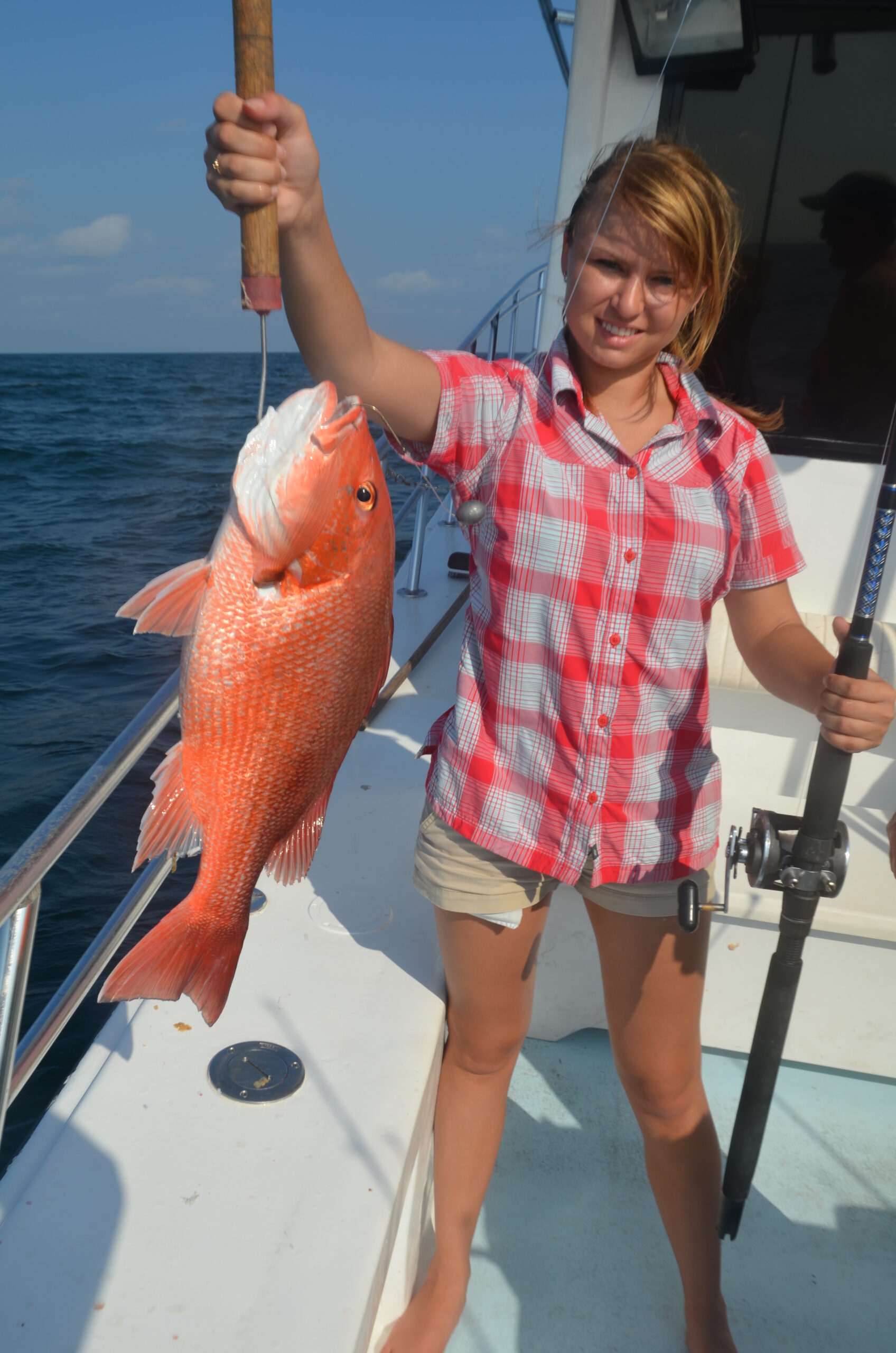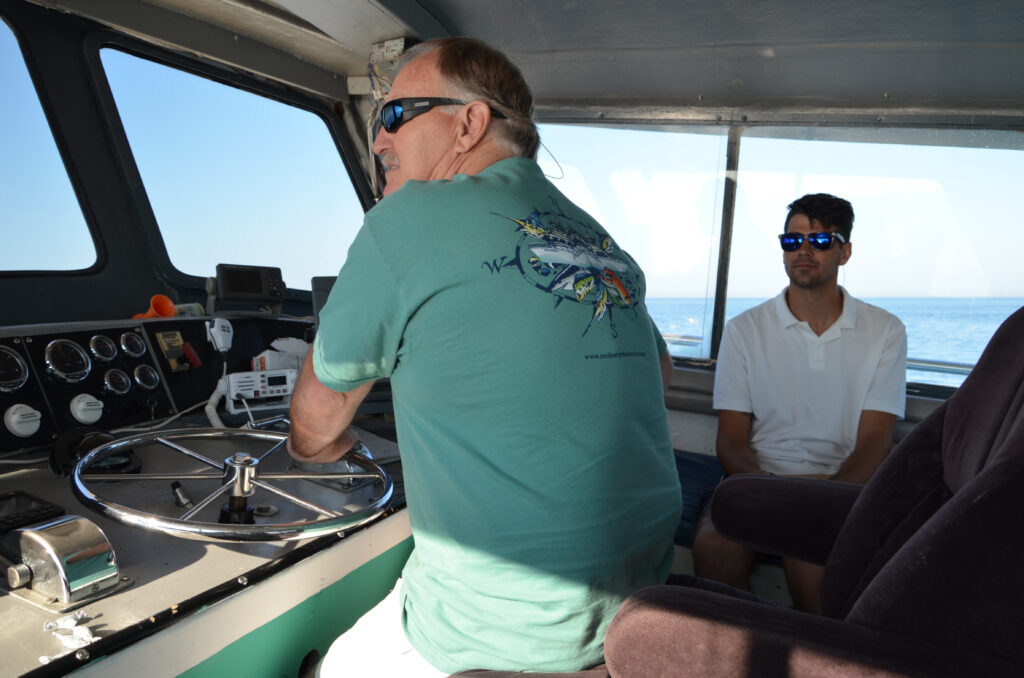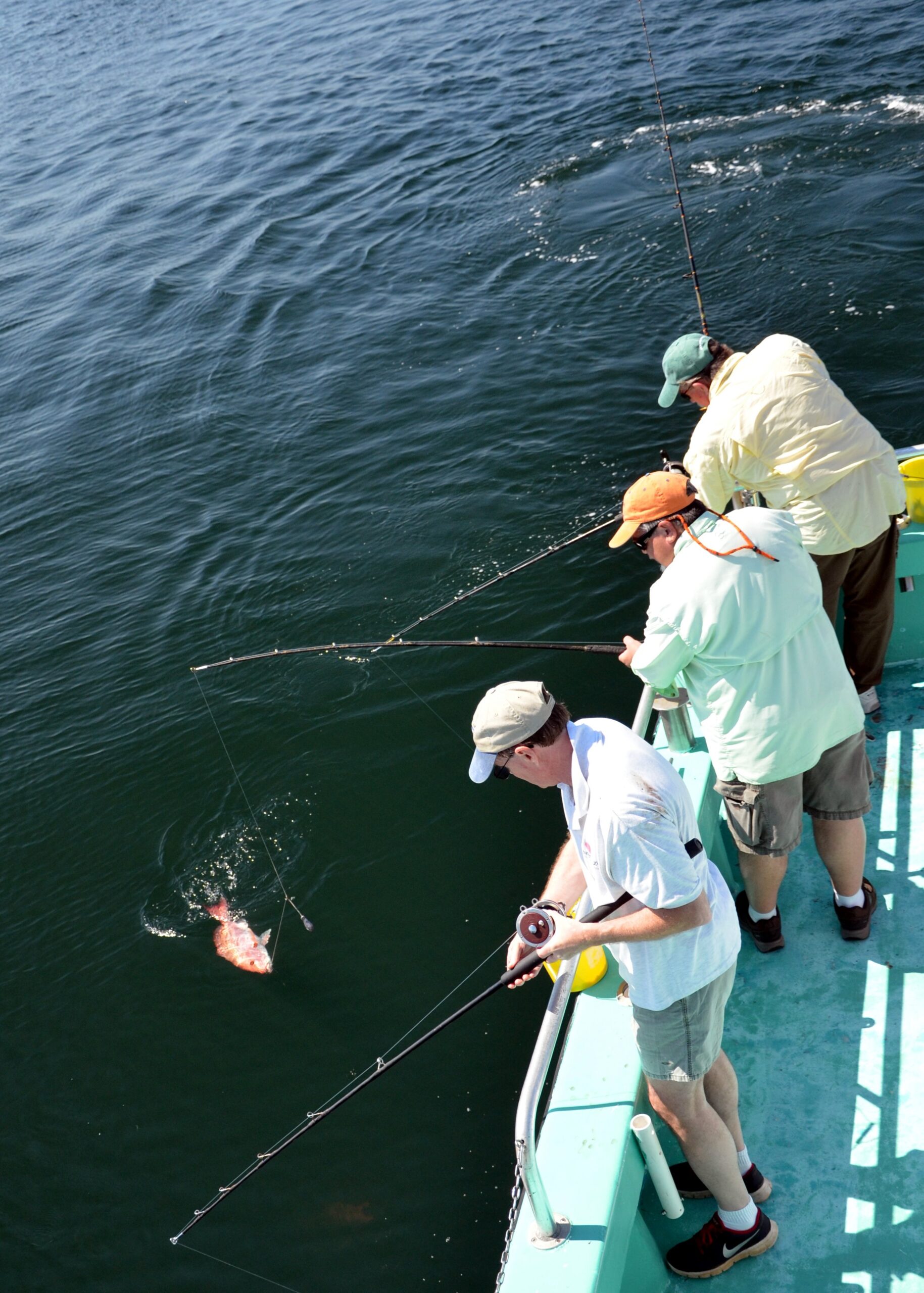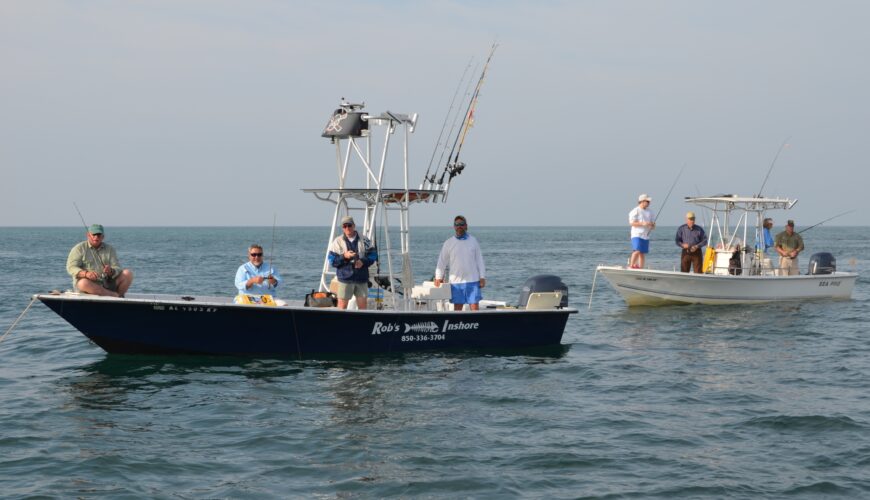Tactics
National Deer Association’s 5 Top Tips for Late-Season Deer Hunting
December 17, 2025 •iSportsman Staff
June 11, 2025
Many people who never fished before want to try it, but don’t know what to do or where to go. Others might remember fishing with their dad or another relative as a child and want to take their own children fishing. Some people just want to try something different, want to experience a quality fishing experience or simply take a vacation day on the water.
A good charter captain or fishing guide can accomplish all those things. Most captains don’t mind teaching people how to fish and can provide all of the equipment. They know where to catch the fish and how to catch them. Many will even clean the catch afterward.
“The main goal of a guide is to help clients catch fish,” explains Capt. Sonny Schindler with Shore Thing Fishing Charters (228-342-2206, www.shorethingcharters.com) in Bay St. Louis, Miss. “Sometimes, I’ll stand next to someone, and we’ll fish together so I can teach that person a new technique.”
Some people might love to fish but can’t afford to own a boat. Perhaps in their busy lives, they can only spare a few days a year to fish. For sportsmen who only fish a few times a year, hiring a guide can save money over buying one, considering the cost of buying, insuring, storing and maintaining a boat, not to mention fuel, bait and a tow vehicle.

A good charter can put you into fish easier than if you were doing it on your own. John Felsher Photo
Before spending big bucks to hit the water, first surf the internet. Most captains post excellent information on their webpages or social media. In some popular destinations, captains belong to a charter boat association. An association representative can recommend captains who meet a potential customer’s needs. Popular marinas can also offer advice.
“Start with local resources, such as a community Facebook page, and find a properly licensed captain,” advises Daryl Carpenter with Reel Screamers Guide Service (225-937-6288, www.reelscreamers.com) in Grand Isle, La. “Many of my first-time customers come from local referrals. Hire charter captains local to that area and not people who come in temporarily from somewhere else.”
After getting some recommendations, do more research on a few captains. How long have they been in business? Search travel advisory sites or recent articles in magazines or websites that might mention different captains.
“I recommend that people research several captains,” Schindler suggests. “Don’t always go for the first or cheapest one. Sometimes, people sacrifice a lot to get a cheap price. Especially call the captains that have been in business the longest. If they have been in business many years, they must be doing something right.”
After narrowing down the field, speak directly to the captain, not just a booking agent. Since captains spend long hours on the water, they might not answer immediately, but most will return the call as soon as possible. Many will also communicate through text and can at the very least set up a time with you to talk.
“I encourage everyone to talk to the actual captain,” Schindler recommends. “Booking agents do a great job putting people together, but the captain knows what he or she can do on the boat. If the potential customer has a bad experience talking with the captain on the phone or in person, chances are that person will not have a pleasant trip on the boat.”
Don’t hesitate to ask questions. Is the captain properly licensed? Most captains gladly show their credentials to prospective customers. Ask about the boats and equipment. What does the captain provide and what should the customer bring? Inquire about any extra fees such as fish cleaning services and tips. Request references. If possible, talk to some people who recently fished with that captain.
“The absolute best idea before booking a charter is talking to the captain,” Carpenter says. “I want the customer to be comfortable booking with me. My philosophy has always been ‘if the captain doesn’t have time to talk to you on the phone, what makes you think he’s got time to deal with you on the boat?’ Tell the captain exactly what you want to do and what you expect out of a charter. Communication is the key.”

A good charter captain knows the water and the fish. Make sure he is a good fit for what you want to do. John Felsher Photo
Customers and captains should agree upon special requests in advance to avoid surprises. Some people want to do specific things or catch certain species. Some people don’t care what stretches the line. They just want to enjoy a good time. Ask the captain to suggest something that could bring action at that time.
Let the captain know how many people will board the boat, especially young children or women. Women may need accommodations with regards to calls of nature. Make sure the captain will be able to accomodate them. Some captains cater to family groups and fish a special way to get youngsters involved. Others only host adults. Don’t surprise the captain by booking a trip for six people and showing up with one adult and five small children.
“We cater some trips specifically toward children,” Schindler says. “With small children, keep it simple. Find something they can easily do. With children, we fish for species easiest to catch that will pull their lines and keep them interested.”
Many fish migrate. A desired species might not be around at trip time. Don’t ask to catch something that doesn’t exist in that area. Most captains will make reasonable effort to accommodate requests. Consider backup plans and ask the captain for suggestions. If Plan A doesn’t succeed, perhaps the captain can recommend Plan B or C.
“It all comes down to communication,” Schindler emphasizes. “The captain needs to know what the client really wants to do, and the client needs to know what the captain can do at that time. Customers should always ask for the captain’s recommendations. Then, the client and captain can discuss what they can do and can’t do to make a plan that satisfies both of their needs and capabilities.”
Since most charter services stay busy during prime fishing times, potential customers should schedule an outing well in advance. During peak periods, don’t call at 9 p.m. Friday and expect to book a charter for 10 people starting at 5 a.m. Saturday. Many good captains may even book an entire season ahead, but usually has some available dates due to clients’ changing schedules.
After agreeing to a time and place, customers need to show up on time ready to spend a day on the water. Captains understand that genuine emergencies do happen and sometimes a customer must cancel a trip at the last minute. If so, contact the captain immediately so that person can possibly book another group or make other arrangements. Most captains will require a deposit up front to book the trip, a deposit that may be forfeited in the event of a late cancellation. Be sure you understand the captain’s policies.
Weather probably causes the most cancelations of any scenario, particularly on offshore adventures where winds and waves can become unsafe. Boat captains must ensure the safety of everyone aboard the vessel. If a captain cancels a trip due to unsafe conditions, don’t argue. He knows what’s best. Usually, that captain will work with the party to reschedule the trip or offer an alternative.

A good trip can be measured by more than the number of fish you catch, but catching fish is still what draws many of us to the water. John Felsher Photo
After spending a day on the water, don’t judge the trip by the weight in the cooler. Captains keep up with fish movements and know how to catch them, but they can’t make them bite. Did the captain do everything possible to make the day safe and enjoyable for all? Did the captain interact in a pleasant way so everyone had a great time?
“Fishing is only one small part of what we do,” Schindler states. “People come fishing with us to have a good time. A trip should be a total experience with the boat ride, what they see and experience and the interaction with other people during the day. If the captain really works hard to put clients on fish and show everyone a great time, the clients will probably come back to fish again.”
Picking the right captain can create lasting memories, whether the person catches the fish of a lifetime or just enjoys the day.
 John N. Felsher is a professional writer, broadcaster, photographer, editor and consultant. An avid sportsman, he’s written more than 4,000 articles for more than 176 different magazines on a wide variety of outdoors topics. He also hosts an outdoors tips show for WAVH FM Talk 106.5 radio station in Mobile, Ala. Contact him at j.felsher@hotmail.com or through Facebook.
John N. Felsher is a professional writer, broadcaster, photographer, editor and consultant. An avid sportsman, he’s written more than 4,000 articles for more than 176 different magazines on a wide variety of outdoors topics. He also hosts an outdoors tips show for WAVH FM Talk 106.5 radio station in Mobile, Ala. Contact him at j.felsher@hotmail.com or through Facebook.
